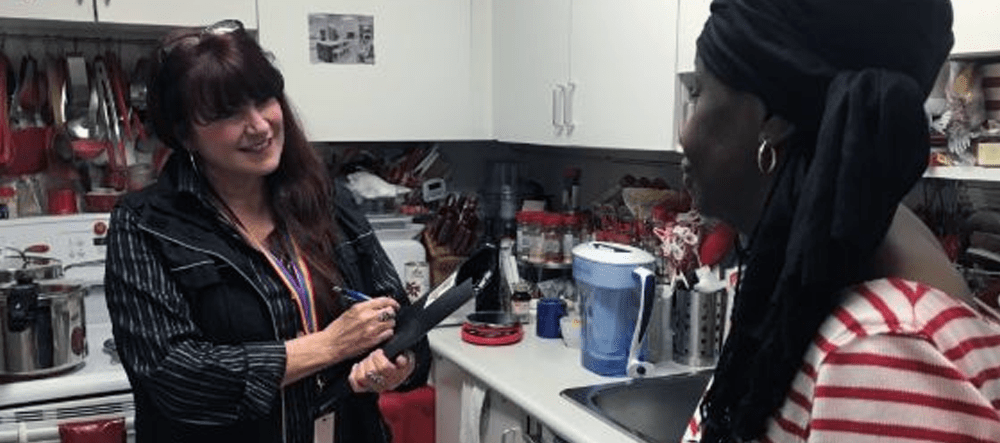New Hoarding Website Ends the Search for Support

Looking back, Yvonne Zilber realizes there were signs that she might be prone to hoarding. “I used to collect stamps and coins and put things in groups,” she says, but her habits didn’t become a problem until after she became sick. “I suffered a psychological blow and was diagnosed with severe depression and anxiety,” she says. “Around that time I started putting more things together, collecting things and doing a lot of buying… the illness was manifesting itself.”
Yvonne’s daughter explained hoarding to her “and she gave me things to read,” says Yvonne. But Yvonne was in denial about her condition, embracing common misconceptions. “I said, ‘I’m not a hoarder. I don’t have any cats or dogs and my house is clean.’ Sure, I had all this stuff in my home but I had a pathway to walk.”
Her daughter began looking for help for her mother’s problematic hoarding, but she found very little information available about services in Toronto. “She looked for a long, long time,” says Yvonne, who was eventually enrolled in a hoarding study at Sunnybrook Hospital.
In April, to address the challenge community members face when seeking support, 16 community agencies that comprise the Toronto Hoarding Support Services Network (THSSN) launched a website with funding from the City of Toronto. The site—www.torontohoardingnetwork.ca—provides Torontonians with a one-stop information portal for hoarding support. It delivers clear information about hoarding to reduce the stigma around the disorder and provides information about supports and services that are available in the city, filling a critical information gap identified by service providers and people with hoarding behaviours.
Now a recognized clinical diagnosis, hoarding is a significant problem in Toronto. The compulsive desire to collect items can lead to injury, collapsing floors, infestations, and fire hazards, and can put people at risk of eviction. “Hoarding is a complex condition. It is often the symptom of other underlying causes, so various supports are needed, such as mental health, public health and housing services,” says Trudy Huet, Chair of the THSSN and a staff member at VHA Home HealthCare, the lead organization on the network. “Working together, we can offer a more effective, coordinated response. And the new website will enable us to help even more people.”
Through support from the Sunnybrook program, Yvonne was able to take control of her hoarding behaviours. “I started to understand it and accept that I had [hoarding behaviours]. Then I was able to accept the help.”
For service providers, the hoarding website is helping to build capacity and share knowledge to address hoarding in the city. For people living with the condition, their loved ones, and others in the community who are interested in learning more about hoarding, the website’s online assessment tools, downloadable supports, helpful videos and links to resources and support services are increasing awareness of the condition and helping reduce the stigma surrounding people who hoard.
Yvonne felt this work was so important that she joined the Network herself to help build understanding about people with lived experience of hoarding. “After therapy I still think I suffer with the disorder but I have awareness now, and that’s why the THSSN is so important. A lot of people suffer and this is bringing education into the community now. People can talk about it and get help,” she says.
Yvonne’s story and media coverage of the hoarding website has been done by CBC, CTV, The Toronto Star and more.
